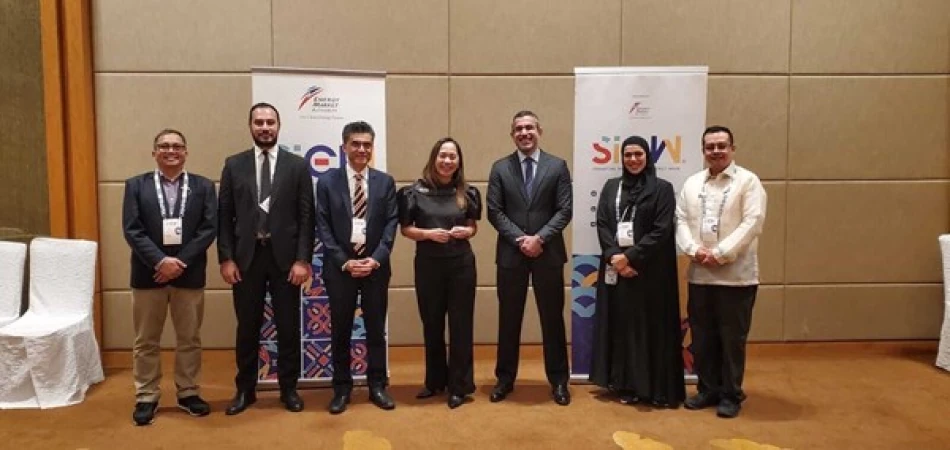
UAE Unveils Vision to Accelerate Clean Energy Transition at Singapore's International Energy Week
The UAE is pushing for faster global adoption of clean energy through cross-border projects and regional cooperation. At Singapore's International Energy Week, a senior UAE energy official called on countries to join the Global Alliance for Energy Efficiency and highlighted how the Emirates has achieved some of the world's lowest electricity tariffs through strategic policy approaches.
Engineer Sherif Al-Olama, Undersecretary for Energy and Petroleum Affairs at the UAE's Ministry of Energy and Infrastructure, spoke at the Singapore-IRENA Ministerial Dialogue. The event brought together energy ministers, policymakers, and experts from around the world under the theme "Envisioning Tomorrow's Energy... Building Today's Systems."
Al-Olama emphasized the UAE's commitment to accelerating clean energy projects that cross national borders. He said this regional and global integration helps achieve energy security and sustainability while supporting broader development goals.
The UAE leads the Global Alliance for Energy Efficiency, which Al-Olama described as the first international platform launched by the Emirates that brings governments, private sector players, and global organizations under one umbrella. The alliance aims to double the global rate of energy efficiency improvement to more than 4% annually by 2030.
According to Al-Olama, the UAE's approach to enabling clean energy investments rests on three main pillars: long-term policy stability, open and competitive markets, and regional and global connectivity.
The strategy appears to be working. The UAE achieved the world's lowest electricity tariffs in two major projects - the Al Dhafra Solar Project and the Mohammed bin Rashid Al Maktoum Solar Park. Al-Olama said this reflects the country's success in building a leading investment environment based on transparency and effective public-private partnerships.
Masdar, the UAE's national renewable energy company, currently develops clean energy projects in more than 40 countries with a total capacity exceeding 50 gigawatts. This global reach demonstrates the UAE's leadership in energy sector transformation and achieving climate neutrality.
The Gulf Cooperation Council's electrical interconnection project serves as a model for regional cooperation. Al-Olama noted that this initiative has helped GCC countries avoid more than $3 billion in additional generation costs while reducing emissions and improving grid flexibility and stability.
He suggested this model could be used to create green energy corridors linking the Middle East with Southeast Asia, where electricity demand is expected to rise by 60% by 2040. Such connections could help meet growing energy needs while maintaining environmental goals.
The UAE's focus on practical implementation rather than just dialogue reflects broader trends in the global energy transition. Countries are moving beyond commitments to actual deployment of clean energy infrastructure, with regional cooperation becoming increasingly important for achieving scale and cost effectiveness.
Al-Olama concluded by saying the UAE will continue working to turn dialogue into actual implementation and strengthen international partnerships that make clean energy, energy efficiency, and electrical interconnection fundamental pillars for achieving shared energy security, sustainable economic growth, and global prosperity.
Most Viewed News

 Layla Al Mansoori
Layla Al Mansoori






